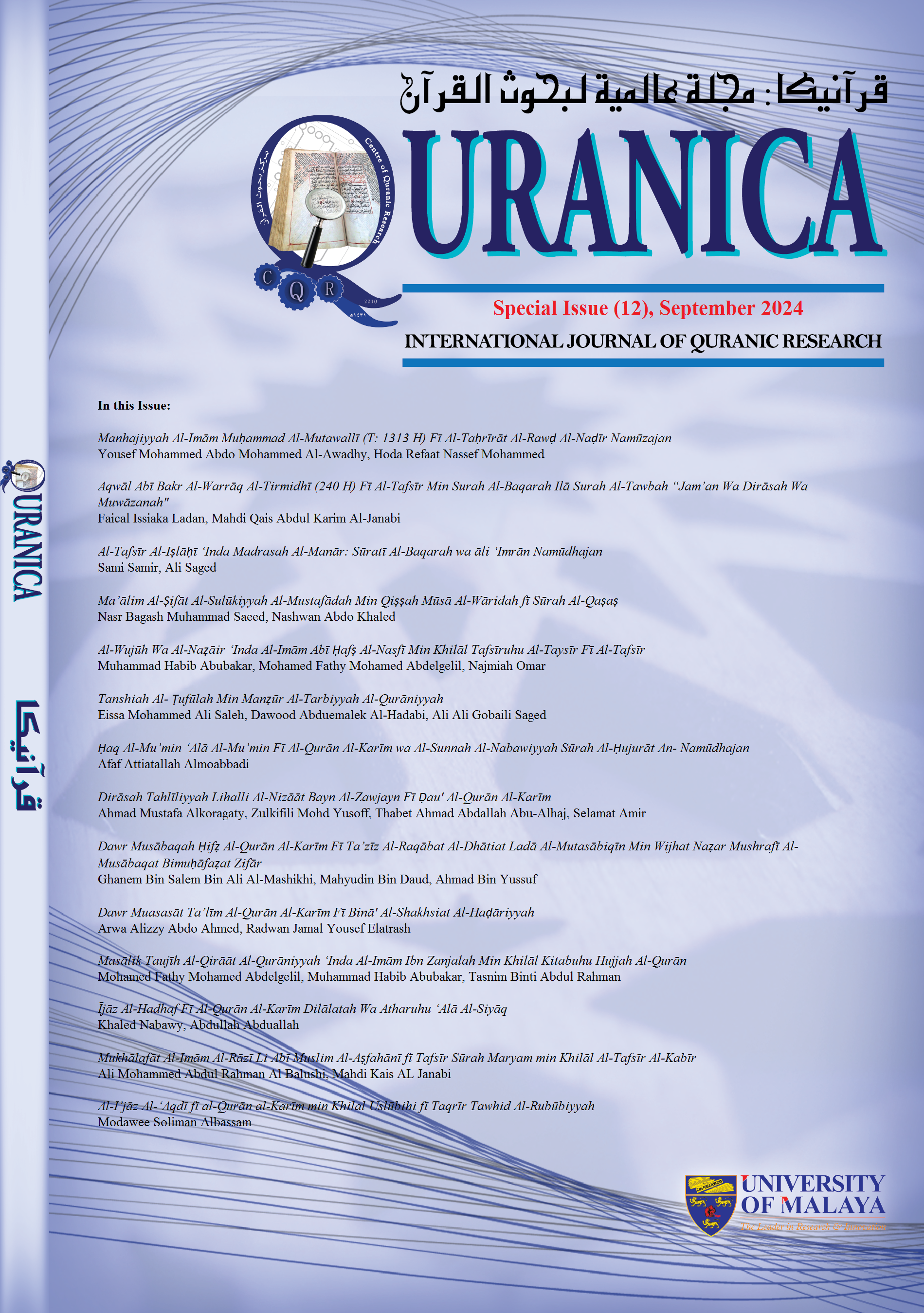Al-Tafsīr Al-Iṣlāḥī ‘Inda Madrasah Al-Manār: Sūratī Al-Baqarah wa āli ‘Imrān Namūdhajan
DOI:
https://doi.org/10.22452/quranica.vol16no2.9Keywords:
Interpretation, Reform, Al-Manar School, Doctrinal ReformAbstract
The scholars’ approaches to interpreting the Holy Qur’an differed, and their views varied based on their inclinations and specializations. Therefore, different schools appeared that cast their shadow on the interpretive intellectual production in Islamic history. Al-Manar School was distinguished by its reformist approach. This research aims to examine the history of reformist interpretation and its most prominent characteristics, while taking the interpretation of Surat Al-Baqarah and Al Imran in the interpretation of Al-Manar as a model for the study. A number of approaches been used in this study, including descriptive, analytical, historical and comparative. The research was divided into two chapters preceded by an introduction, followed by a conclusion and indexes. The first chapter focused on reform interpretation, focusing on its history and its most prominent characteristics in style and content, and the second chapter focused on the doctrinal, social and political aspects of reform. In the interpretation of Surat Al-Baqarah and Al-Imran from Tafsir Al-Manar. The research reached a number of results, the most important of which are: The reformist interpretation arose at the hands of the Messenger of God, may God bless him and grant him peace, and that the reformist interpretation was distinguished by a number of characteristics in terms of style, including: speaking to the audience in the third person, and using construction methods such as the call, the imperative, and the interrogative. And the oath. The content of the reformist interpretation was distinguished by a number of features, including: the call for correcting the doctrine and staying away from superstitions, focusing on areas of sermon and lesson, and an attempt to link the interpretation to the reality of the people and their lives.
Downloads
Downloads
Published
Issue
Section
License
Disclaimer
QURANICA makes every effort to ensure the accuracy of all its contents. However, opinions, discussions, views and recommendations are expressed in this journal do not necessarily reflect the official policy of QURANICA or views of its editors or publishers. Therefore, QURANICA and its publishers will not be liable for any controversy may be arisen. The journal reserves the right, at its sole discretion, to change its terms and conditions of publications.
Copyright
It is a condition of publication that manuscript submitted to the journal have not been published, accepted for publication, nor simultaneously submitted for publication elsewhere. By submitting a manuscript, the author(s) agrees that copyright for the article is transferred to the publisher, if and when the manuscript is accepted for publication.






